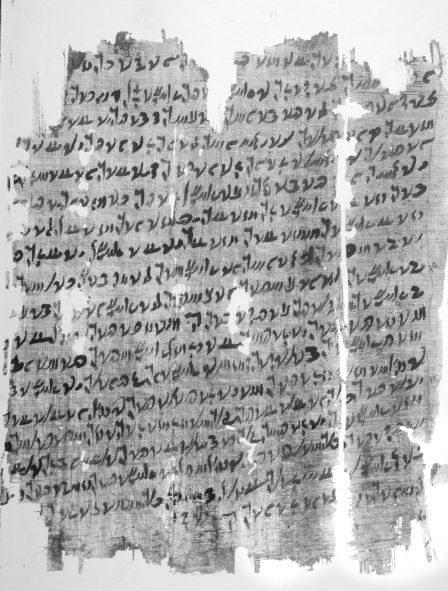The Hebrew language is forever tied to the Hebrew Bible, the advancement of which mirrors the evolution of the Jewish written language. Critical studies of the Old Testament, compared to ancient sources of the same text, reveal the passages have undergone a chain of stages before they reached the canonical versions we know today. Unfortunately, tracking this evolution is completely dependent on discovering material evidence.
The Egyptian papyrus, known as Amherst 63, is an example of such evidence. Discovered in Luxor, Egypt, in the late 19th century, it contains a composition that is strikingly similar to Psalm 20.

This worn sheet of papyrus contains 35 literary texts, written in Aramaic, that date between the 7th and 6th centuries BC. Curiously, however, the Aramaic words are written in an Egyptian cursive called Demotic. It is this unusual combination of languages that has caused the process of deciphering the passages to take more than 120 years.
Biblical Archaeology reports Karel van der Toorn, of the University of Amsterdam, published a new translation of Amherst 63. In his article, “Egyptian Papyrus Sheds New Light on Jewish History” from the July/August 2018 issue of Biblical Archaeology Review, Toorn contends that the papyrus contains two more psalms, besides Psalm 20. He said:
“The two other psalms of the Amherst papyrus are not in the Bible. That does not make them any less valuable from a historical and literary point of view. These were songs the Israelites chanted before their religion turned monotheistic.” And he adds: “The three psalms clearly belong together: They were evidently composed originally in Hebrew; they celebrate Yaho (an alternate form of the name Yahweh) as king of the gods; and they are part of the liturgy of the New Year’s festival as celebrated by an Aramaic-speaking community.”
Toorn stated there was evidence suggesting that while the papyrus was penned in the 4th century BC, the text was several centuries older, and most likely originated in Palmyra, modern-day Syria, rather than in Egypt, where the ancient manuscript was discovered.

